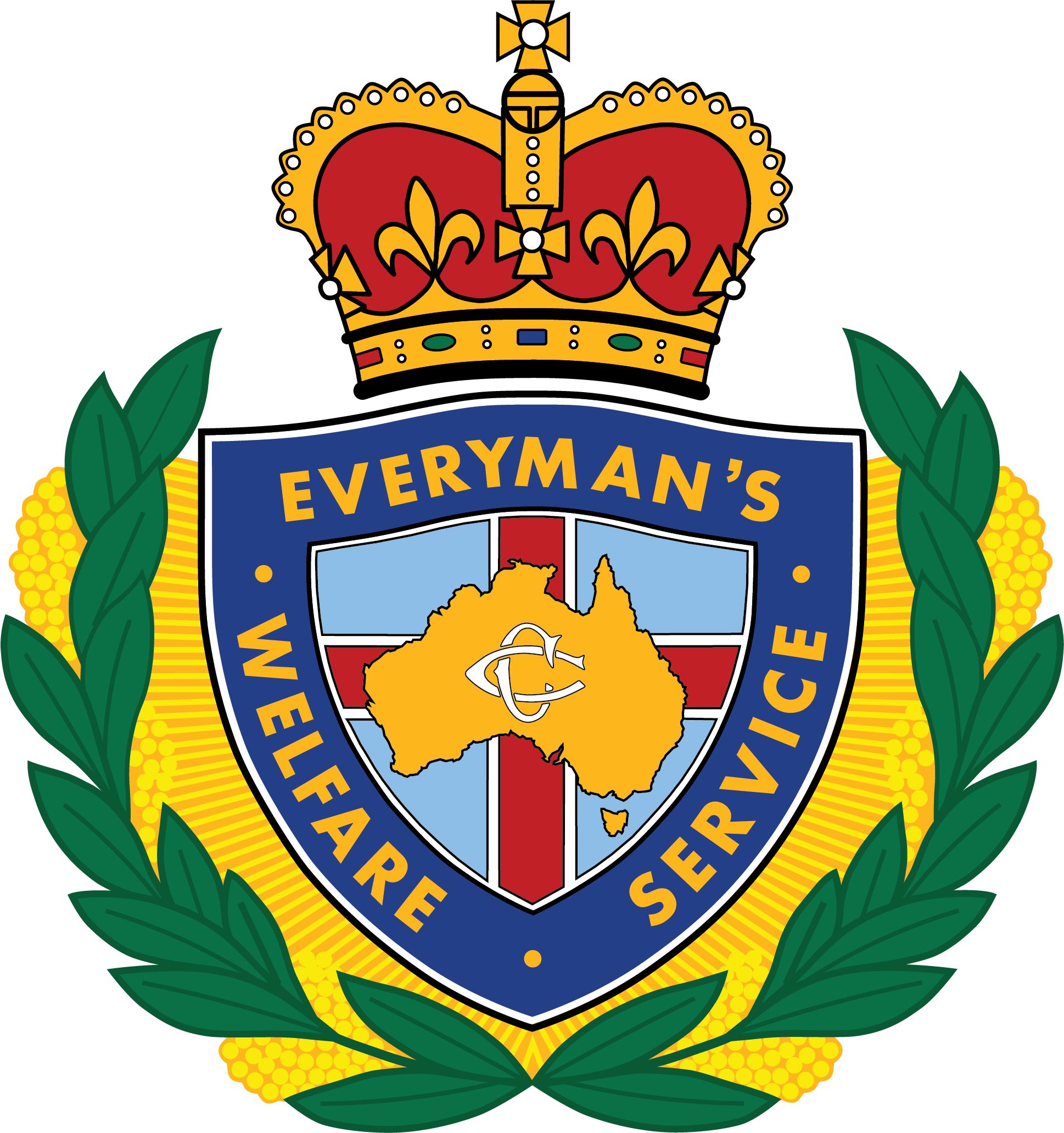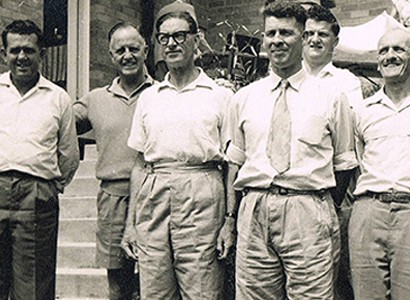
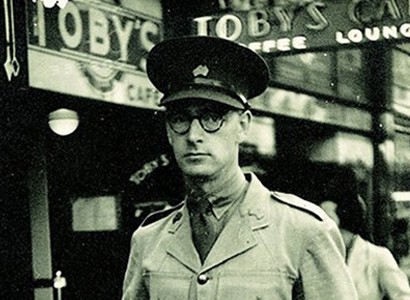
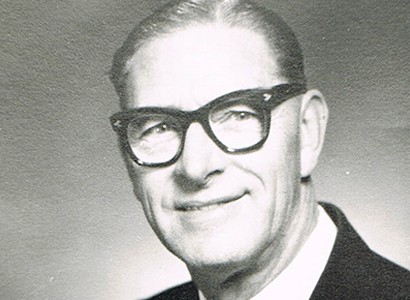
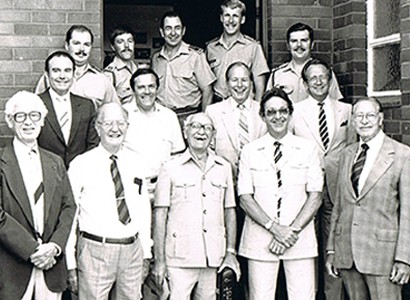
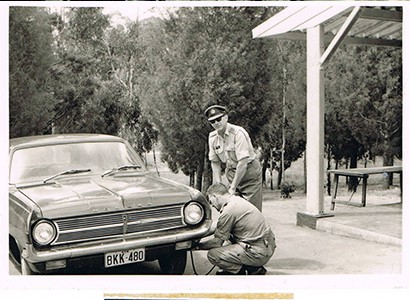
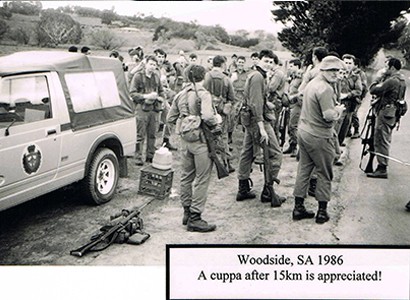
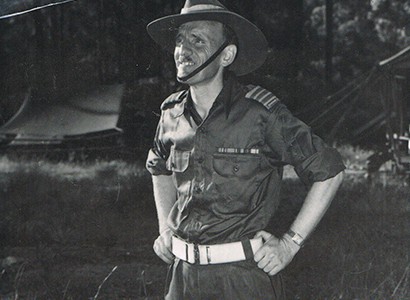
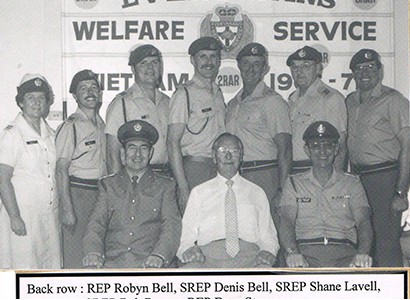
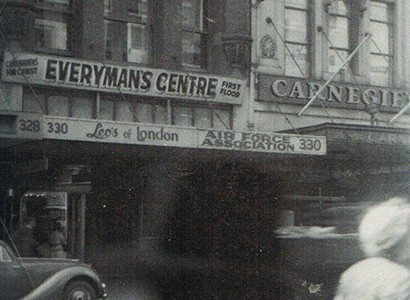
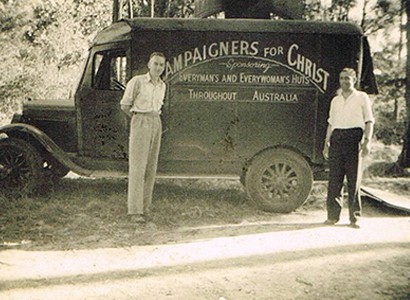
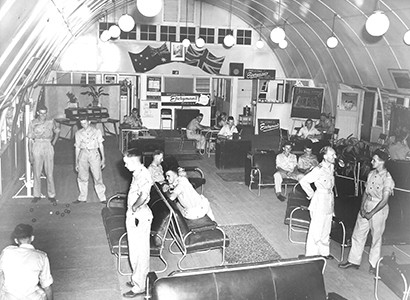
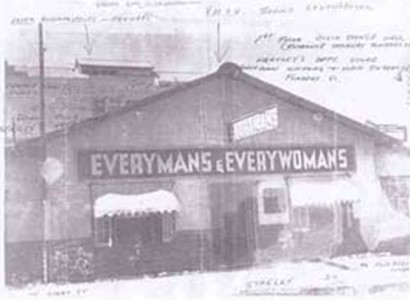
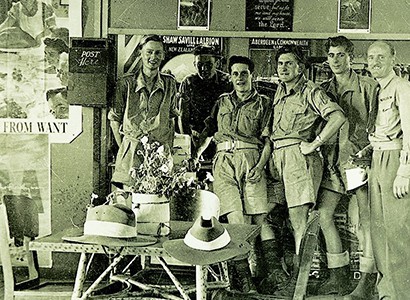
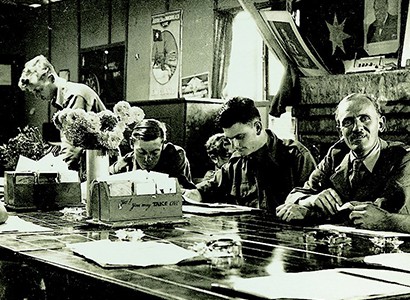
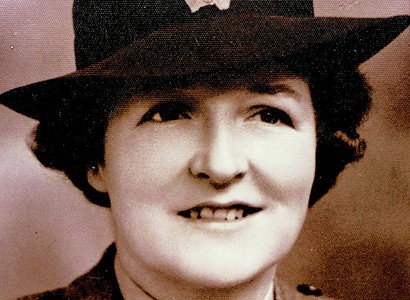
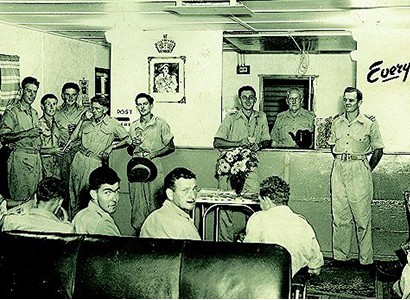
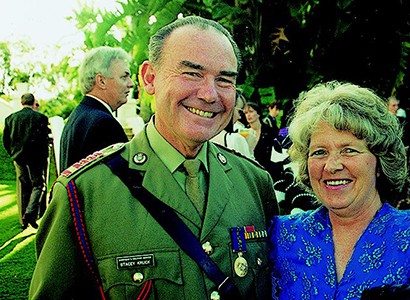
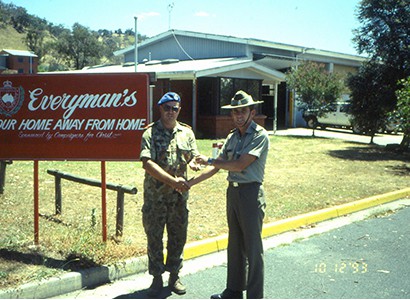
In 1936 a group of businessmen and Christian layman in Melbourne and Sydney became known as Campaigners for Christ. The Melbourne group gained permission to erect a building in the Royal Melbourne Showgrounds. From there they provided light refreshments, Christian entertainment, and witness. At the outbreak of the Second World War the Showgrounds were converted to a RAAF transit camp and school. Campaigners for Christ approached the military authorities and requested permission to staff their building and provide a service to the young airmen. This was the only work undertaken with the RAAF as a sole service.
About the same time, one of the foundation members of Campaigners for Christ, Leonard Buck, purchased and fitted out a mobile van. Somehow, he gained permission to go to the Malay Peninsula to provide comforts literature and Christian witness to RAF, British and Australian personnel.
As the Japanese advanced down the Peninsula, Buck fell back with the Allied Forces to Singapore. Together with his vehicle, he was loaded on the ‘Empire Star’, one of the last ships to leave Singapore Harbour. He accompanied the RAF Headquarters to Java, and from there sailed to Perth, where he was interviewed by the Secretary for War, Frank Sinclair.
At the time of the retreat from Singapore, two other men were en-route to join him and were redirected to Darwin. They were in the process of building a Centre in Smith St when the site was bombed by the first Japanese attacks on the city. With the mass evacuation of the city, service personnel were at a premium and the two Everyman’s staff members were seconded to supervise a train load of women and children to Melbourne. Alec Gilchrist told of ringing ahead to Adelaide, telling of the coming trainload of families. In Adelaide they were refused permission to leave the train and so local churches brought food and drink to the women and children at the railway station.
Meanwhile, in Perth, Len Buck was given a Mayoral reception at the Town Hall, and enthused the public with his vision of how they could serve the men and women of the Australian Services. Crowds packed the Town Hall, and this was repeated in Adelaide, Melbourne, Sydney, Brisbane, and Townsville.
Not long after, Len Buck and several others, journeyed from Melbourne to Albury where they met Brigadier Blake and investigated establishing a Recreation Centre at the soon to be opened Bonegilla Camp, 15km east of Wodonga, Victoria. It was at the Bonegilla camp where the first ‘Everyman’s Hut’ was built to serve the Army, (The name ‘Everyman’s is derived from the Biblical reference of Colossians 1:28).
From these beginnings Everyman’s spread rapidly to many locations around Australia, including an Everywomen’s Hut at Bandiana, 5km from Wodonga, staffed by women. Tea rooms were also established in capital cities. The Huts were staffed by ministers of religion, missionaries who had returned to Australia due to the war, and countless civilian men and women volunteers. Everyman’s staff wore a Military cut uniform, of a grey-pink colour and were given Officer status by the local Commanders.
The Huts were largely identical in nature: comforts and entertainments were offered to the soldiers, offering a ‘home away from home’ atmosphere. They were open long hours each day; at this stage the uniformed staff lived in sleeping quarters in the Hut. From there friendly counsel and encouragement was given, both around the camps and out in the field during exercises. The Huts tea rooms were funded by donations from Servicemen and women, funds raised through Len Buck’s tours, and the Christian public, as well as many of the staff contributing their own allowances.
Following the Second World War, many of the staff returned to their previous employment. However, at a number of camps the Huts remained open and offered the same services to the troops as before. Around 1946 arrangements were undertaken to formally recognise the services of organisations who assisted the Military Forces and official Accreditation was offered to the Red Cross, Salvation Army, YMCA/YWCA, Australian Forces Overseas Fund and Campaigners for Christ. Officer status was officially conferred on the staff members and special Rank insignia was worn.
Everyman’s continued to serve during the two National Service callups, the longest continuous Centre being at Kapooka, which was established in 1953 when the camp was an Engineer Depot. It still operates today. Welfare Representatives have served overseas in Malaya, Singapore, Papua New Guinea, Vietnam, Cambodia, East Timor, and Solomon Islands. Three staff members have been awarded Australian Honours for service with Everyman’s. In 1977 the Everyman’s Reserve was formed. Volunteers from churches and Bible Colleges, were trained to assist and relieve the full-time staff as available. This allowed staff to undertake deputation programmes, take annual leave and ensure Bases were manned when staff were on exercise.
In 1991 the Chief Commissioner of Everyman’s, Stacey Kruck, OBE OAM, hosted a dinner at Victoria Barracks, Sydney, to mark the Jubilee year of the Organisation. Special Guests included the Chief of General Staff, LTGEN John Coates, AO, MCE and Mrs Coates and CCOM L E Buck, AM(Rtd), the Patron of Everyman’s. At the dinner 50 Jubilee medals which has been struck for the occasion, werepresented to individuals to mark their valuable contribution to the work. Also presented were nine Service Medals, recognising at least 10 years full-time service.
In anticipation of the general move of the Defence Force to northern areas of Australia, the Headquarters of Everyman’s was established in Brisbane, Qld in January 1991.
In 1999 the RAAF requested philanthropic support on its Darwin Base which accommodated a transit camp during INTERFET and UNTAET in East Timor. This was the first Centre to open on a RAAF Base since World War II.
In 2010 Everyman’s celebrated its 70th Anniversary of serving the Australian Defence Forces with a Dinner at Victoria Barracks, Brisbane. In attendance were special guests, Everyman’s Veterans, supporters, and current Everyman’s personnel. Everyman’s veterans then marched together on ANZAC Day in Brisbane for the first time. In 2015 Everyman’s celebrated its 75th Anniversary of serving the Australian Defence Forces with a Dinner at the Commercial Club, Albury.
Today Everyman’s is on Army, Air Force and Navy Bases across Australia. Everyman’s still provide “Home away from Home” Recreation Centres; and Brew trucks on Exercises and at events. Everyman’s REPs are also in Units being supportive of and providing Christian friendship to personnel and their families. Everyman’s is a not-for-profit organization relying completely on donations to do this much needed and important work among the Defence Forces.
